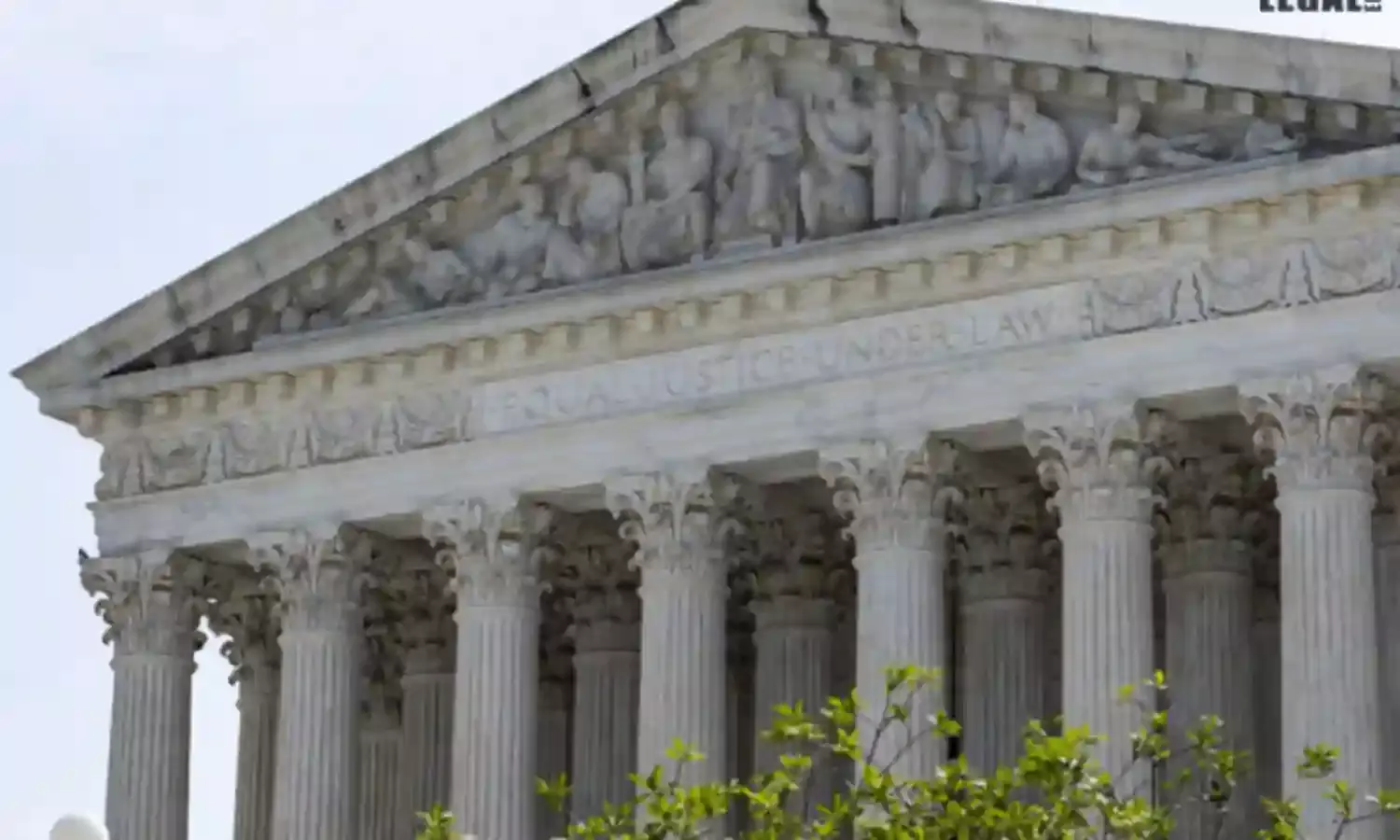US Supreme Court Upholds Government-Social Media Interaction Amid Free Speech Debate
The US Supreme Court recently rejected a Republican-led attempt to limit government communication with social media firms;

US Supreme Court Upholds Government-Social Media Interaction Amid Free Speech Debate
The US Supreme Court recently rejected a Republican-led attempt to limit government communication with social media firms on content moderation, potentially bolstering efforts to combat misinformation in an important election year.
The decision is a win for President Joe Biden's administration and government agencies, allowing them to alert major platforms like Facebook and X about content they deem false or hateful before the November presidential election.
In a 6-3 vote, the justices dismissed the case, citing that the challengers — two states and social media users — lacked sufficient legal standing due to a lack of direct injury.
"The plaintiffs lack a concrete connection between their injuries and the defendants' actions, as they ask us to review years-long communications between dozens of federal officials, across different agencies, with different social media platforms, about different topics," wrote Justice Amy Coney Barrett for the majority. "This court's standing doctrine prevents us from exercising such general legal oversight of the other branches of government."
The ruling disappointed conservative advocates who claim the government pressured or colluded with major platforms to censor right-leaning content under the guise of fighting misinformation.
"For months, high-ranking government officials placed unrelenting pressure on Facebook to suppress Americans' free speech," wrote Justice Samuel Alito, dissenting alongside Justices Clarence Thomas and Neil Gorsuch. "Because the court unjustifiably refuses to address this serious threat to the First Amendment, I respectfully dissent," Alito added, asserting that one plaintiff had legal standing to sue.
Firebrand Republican lawmaker Jim Jordan, who has spearheaded a broad legal campaign against misinformation researchers, also expressed disappointment over the ruling.
"The First Amendment is first for a reason, and the freedom of expression should be protected from any infringement by the government," stated Jordan, chair of the House Judiciary Committee, in a statement. "While we respectfully disagree with the court's decision, our investigation has shown the need for legislative reforms... to better protect Americans harmed by the unconstitutional censorship-industrial complex."
The case began with a lawsuit by Republican attorneys general of Louisiana and Missouri, who argued that government officials crossed boundaries by pressuring social media platforms to combat vaccine and election misinformation, violating the First Amendment rights of social media users.
Last year, a lower court limited top officials and agencies in the Biden administration from meeting and communicating with social media companies to flag posts deemed harmful.
The order affected entities including the White House, the Federal Bureau of Investigation (FBI), the State Department, the Justice Department, and the Centers for Disease Control and Prevention (CDC).
Some experts in misinformation and First Amendment law criticized the lower court ruling, arguing that authorities must strike a balance between combating falsehoods and avoiding overreach that could lead to censorship or infringe on free speech.
The lawsuits were seen as attempts to manipulate the First Amendment, potentially undermining the government's ability to protect the United States from election interference and disinformation campaigns, according to watchdog group Accountable Tech, which welcomed the Supreme Court decision.
"Collaboration between the government and platforms on foreign influence campaigns, election integrity, and public health crises is crucial for safeguarding public safety and upholding a robust democracy," the group stated.
"This decision comes at a pivotal time just months before the November election, as tech companies scale back trust and safety teams and recklessly deploy new AI products contributing to accelerated online disinformation," the group added.

